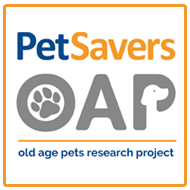Senior dog owners wanted for Old Age Pets project

The project aims to bring significant improvement to the quality of life for senior dogs.
Senior dog owners are being encouraged to take part in a project aimed at helping veterinary professionals and owners provide the best care for their pets.
The Old Age Pets project, which aims to bring significant improvement to the quality of life for senior pets, is being funded by research organisation Petsavers, the charitable arm of the BSAVA.
University of Liverpool researcher Lisa Wallis is calling on senior dog owners to submit a photo or video of their pet, along with brief notes about what it is like to live with and care for an older dog.
The findings will be used to support the development of a ‘Canine Ageing and Wellbeing’ tool for use in veterinary practice, to allow for the early detection of health problems.
Ms Wallis said that she is particularly passionate about the project because her dog, a nine-year-old husky called Talie, is starting to show signs of ageing.
She explained: “Talie has osteochondrosis (a bone growth disorder), caused by an attack from another dog. He also has food allergies and a perineal hernia but because I am aware of his conditions, I am able to manage them and help him age gracefully.
“This project is so important because it will help owners to distinguish between the signs of serious age-related diseases and normal age-related changes in our dogs. Early preventative care can bring significant improvement to the quality of life of senior pets and the dog-owner relationship.”
Ms Wallis is calling on any UK residents who currently or recently live with senior dog/s of any breed or health status to take part in the project. The team will then analyse the submitted content for common themes.
For more information about the project and to get involved, visit the PetSavers website. Data collection will close on Friday 31 July.



 The Veterinary Medicines Directorate (VMD) is inviting applications from veterinary students to attend a one-week extramural studies (EMS) placement in July 2026.
The Veterinary Medicines Directorate (VMD) is inviting applications from veterinary students to attend a one-week extramural studies (EMS) placement in July 2026.